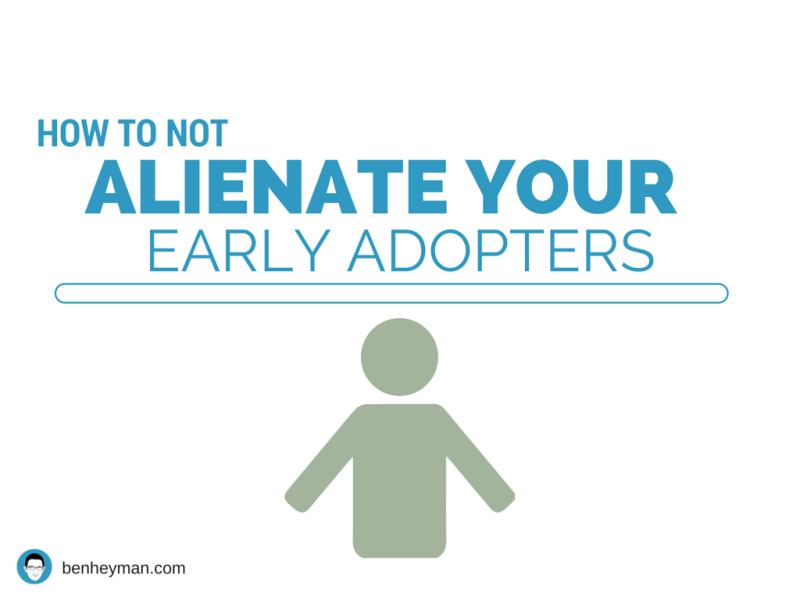
Every startup relies on their early adopters to scale and grow up. Every business, even Apple and Google, once started as a small side project without much chance of maturing into what they have become today. Those early adopters believe in the mission of the company and the people behind it. Those early adopters share their advice and opinions on how the company can improve, they spread the messages to their audiences and they help the business grow.
But when a startup matures into an established and growing businesses many pain points arise. Scaling a business is tough. Communicating effectively to the early adopters and potential new customers calls for two different but aligned communication strategies. While new business is important for long-term sustainability you cannot forget about the people who went to bat for you and helped you get to where you are today.
In Boston there is a mass-transit alternative called Bridj. Bridj is a low-cost transportation service offering commuters a reserved seat, WiFi and a comfortable ride to work. I began using Bridj on their second day of operation. Over the couple of weeks I was a Bridj customer I watched the business evolve; I watched big charter buses be replaced with smaller busses, I watched pickup times be adjusted and I participated in countless surveys sent to me to improve the service. I witnessed the end of the free beta service turn into a paid service, one that I happily bought into as I enjoyed the service.
But slowly Bridj was growing up and the personalized service I grew to know soon disappeared. The friendly face at the pickup point welcoming me and wishing me a good ride disappeared and was replaced by self-service. My tweets to the company with feedback about my experience were soon overlooked and went without a response. The personalized emails acknowledging me as an early adopter soon were replacing with broad and generic marketing messages.
It was not only the commute-alternative that drove me to Bridj. It was the personalized experience that proved to make it a better alternative than mass transportation. I soon felt alienated and forgotten about. I become just another dollar sign to the company. My voice was silenced. With that my account grew stale and I stopped using the service.
I am sure Bridj is not the only company to experience this. Sure, some of the personal experience I was provided during the beta period would not be able to scale as the company matured. But soon everything I went through for the company was forgotten.
Here is what Bridj and many other startups can do to keep their customers from becoming alienated like I did:
Offer exclusive opportunities to early adopters
Whether it would be discount codes, surveys to solicit feedback or an advisory panel, do not forget about the people who helped your business succeed and grow. Small gestures go a long way.
Give an insight into the future
Things grow and change. We all get that. Give your early adopters a sneak peak into what is coming. Let those people in on the future plans. Ask for their advice. Ask for their help.
Reward the referral
One reason I am loyal to Lyft (over their competitors) is their opportunity to earn free rides for referring new customers. I have earned dozens of free rides for my loyalty in recruiting new riders. I talk about Lyft as if I am an employee with nothing but good things to say. Advocacy deserves reward. Something as simple as a service I stand behind and a referral bonus keeps me incredibly loyal to Lyft. Something similar is not that hard to implement for any business.
This article was syndicated from Business 2 Community: How to Not Alienate Your Early Customers as Your Business Matures
More Sales & Marketing articles from Business 2 Community:




